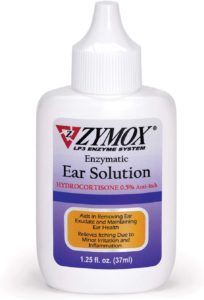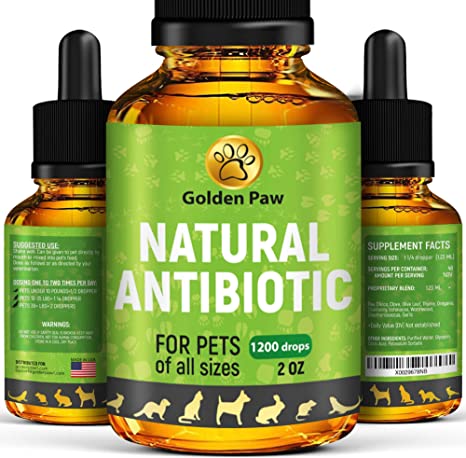Can dogs take human antibiotics? It’s Sunday night and your dog is REALLY feeling under the weather but your veterinarian isn’t open.
Pet owners want to know how to make their animal feel better- but are some medications potentially toxic to your pets health?
We all take our animal’s health seriously. But it REALLY stinks when our dogs are sick and we can’t get them help right away.
But, antibiotics are antibiotics- right?
CAN DOGS TAKE HUMAN ANTIBIOTICS?
Dogs can take SOME human antibiotics, although veterinarians would likely recommend not giving any medication without first being prescribed.
Antibiotics that are safe for your dog and commonly prescribed to humans are:
- Penicillin
- Ampicillin
- Cephalexin
- Human Amoxicillin
- Otomax
These antibiotics are typically used to treat bacterial infections such as strep throat, pneumonia, and bronchitis in humans. They can also be used to treat urinary tract infections and skin infections.
Dogs should NOT take:
- Tetracycline
- Fluoroquinolones
- Macrolides
These antibiotics are used to treat more serious infections such as Lyme disease, Rocky Mountain spotted fever, and leptospirosis. They can also be used to treat urinary tract infections that are resistant to other antibiotics.
So, can dogs take human antibiotics? The answer is- it depends on the antibiotic. Be sure to check with your veterinarian before giving your dog any human medication, even if it is one that is safe for dogs. And, as always, follow the dosage instructions carefully. Giving your dog too much or too little of any medication can be dangerous.

USING AMOXICILLIN FOR MY DOGS
As a pet parent, it’s important to know that you can use amoxicillin for your dogs- but there are a few things you should keep in mind.
First, amoxicillin is a prescription medication. This means that you will need to get a prescription from your veterinarian before giving it to your dog. If you have extra amoxicillin that was originally prescribed as a humans prescription, do your research before administering it as treatment or make a quick call to your veterinarian.
Second, you should always follow the dosage instructions that are provided by your veterinarian. Amoxicillin is available in both tablet form and liquid form.
The liquid form is typically easier to give to dogs as it is administered orally and can be mixed onto their food or with something like fish oil, but the pill form can be crushed and mixed with food or hidden in a treat if necessary.
FINDING THE CORRECT DOSAGE OF ANTIBIOTICS FOR DOGS
Finding the right dose of antibiotic for dogs is safest when you can speak with your vet.
After all- you are treating an animal with an antibiotic drug which does have impact on your pet’s health.
It is not okay to give antibiotics at random- without knowing what the cause is.
In order to find the dosage, you will need to know the entire body weight of your dog’s body.
If you don’t have a scale at home, most veterinarians will be more than happy to help you weigh your dog during an appointment or even over the phone.
Once you know the weight of your dog, you can start to look up the dosage for antibiotic that is recommended for animals.
Depending on how the antibiotics work, which antibiotics you are using, and what ailment you are trying to treat will dictate the dosage for your dog.
DO ANTIBIOTICS HELP BACTERIAL INFECTIONS IN DOGS?
Yes- antibiotics are incredibly useful in treating bacterial infections in dogs.
Bacterial infections can cause a variety of symptoms in dogs including:
- Fever
- Lethargy
- Loss of appetite
- Vomiting
- Diarrhea
- Weight loss
Antibiotics help by killing the bacteria infection that is causing these symptoms.
It’s important to note that antibiotics will not help with viral infections- such as the common cold or kennel cough.
For these types of infections, you will need to focus on supportive care such as making sure your dog is drinking plenty of fluids and resting.
IS THERE A MEDICINE TO TREAT A URINARY TRACT INFECTION IN MY DOG?
Yes- there are antibiotics that can help treat urinary tract infections (UTIs) in dogs.
The most common antibiotic used to treat UTIs in dogs is amoxicillin.
Amoxicillin is a broad-spectrum antibiotic which means that it is effective against a wide variety of bacteria.
This makes it a good choice for minimal side effects to treat infections of the urinary tract.
WHAT MEDICINE CAN I GET FROM MY VET TO TREAT EAR INFECTIONS?
There are a few different antibiotics that can be used to treat ear infections in dogs.

Xymox is our absolute FAVORITE cleanser if your Great Dane has yeast or inflammation in its ears.
The most common antibiotic used to treat ear infections is called cefpodoxime.
Cefpodoxime is a broad-spectrum antibiotic which means that it works against a wide variety of bacteria.
This makes it a good choice for minimal side effects to treat infections of the ear.
Another antibiotic that can be used to treat ear infections is called enrofloxacin. If you are prescribed this antibiotic, it is important to follow the dosage instructions carefully as enrofloxacin can have some serious side effects if not used correctly.
Enrofloxacin is a narrower spectrum antibiotic which means that it works against a smaller variety of bacteria infection.
WHAT ARE THE SIDE EFFECTS OF THE MOST COMMON ANTIBIOTICS?
The most common side effects of antibiotics are:
- Diarrhea
- Nausea
- Vomiting
- Loss of appetite
These side effects are typically mild and go away on their own. However, if you notice any severe side effects, it is important to contact your veterinarian immediately.
Even veterinary specific medicines can cause gastrointestinal upset- and can change the flora of your pets gut. If your dog has an infection or you are prescribed any antibiotics or other medications, you should get a probiotic to keep your dog’s stomach flora healthy.
IS THERE A NATURAL ANTIBIOTIC FOR ANIMALS?
There are a few different natural antibiotics that can be used for animals.
The most common natural antibiotic is garlic.
Garlic is a broad-spectrum antibiotic which means that it works against a wide variety of bacteria.
This makes it a good choice for minimal side effects to treat infections.
Another natural antibiotic is honey. Since bees are food producing animals, it is best to source honey locally.
The most common way to use honey as an antibiotic is to topically apply it to a wound or infection.
When using honey medicinally, it is important to make sure that you are using raw, unprocessed honey for maximal benefit.
Honey is a narrower spectrum antibiotic which means that it works against a smaller variety of bacteria infection.
Honey is also a natural antiseptic, which means that it can help to prevent infections.
MY DOG IS HAVING AN ALLERGIC REACTION TO A DRUG
If your dog is having any sort of reaction to any medication, even any of the most common antibiotics, it should be considered an emergency.
In a reaction, your pet could struggle with their respiratory system and have difficulty breathing.
Their respiratory tract could swell up and close off, causing them to suffocate.
If your dog is having an allergic reaction to a medication, the first thing you should do is call your veterinarian or emergency animal hospital immediately.
Do not try to give them anything else, not even over the counter medicines meant for humans- as these could further complicate the vet attempt in treating your pet.
ARE HUMAN MEDICATIONS THE SAME AS DOG ANTIBIOTICS?
The answer to this question is very complex. In short- no, human medications are not the same as dog antibiotics.
There are some similarities- such as the fact that both humans and dogs can take amoxicillin for bacterial infections.
However, there are also key differences that pet parents need to be aware of.
Dogs process medications differently than humans do. This means that the dosage, frequency, and even the side effects can be different for dogs.
For example, even though dog amoxicillin is safe, some human grade amoxicillin can cause stomach upset in dogs.
This is why it is so important to always speak with a veterinarian before giving your dog any medication- even if it is something as seemingly innocuous as an antibiotic.
SHOULD I GIVE MY DOG HUMAN GRADE AMOXICILLIN OR ANTIBIOTICS?
In theory, there are many medications that you can share with your pet.
However, be careful going to the human medicine cabinet for your pet’s antibiotics.
Many human medications, even over the counter drugs, can be dangerous or even deadly for animals.
The best way to give your dog the medication they need is to speak with a veterinarian and get a prescription.
This will ensure that your pet gets the correct dosage and frequency for their individual needs.
READ MORE:

JOIN OUR COMMUNITY
Do you like modern positive+balanced off-leash dog training, science-based information, life with Danes, educated ownership and chatting with other like-minded people?
Join our growing Facebook group!







